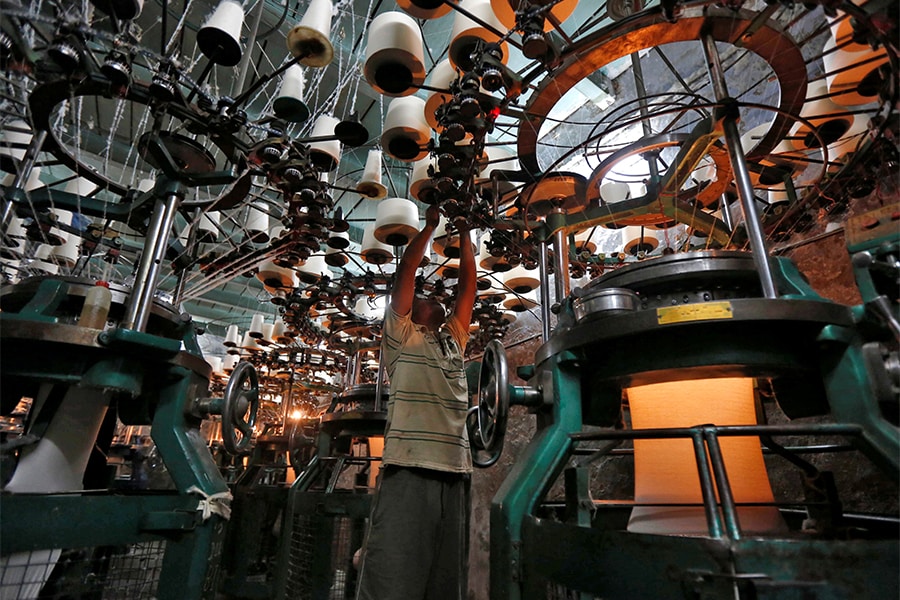
Industry hails FM's move to slash corporate tax for MSMEs to 25%
The reduction will give a boost to the startup ecosystem

Image: Rupak De Chowdhuri / Reuters
In a respite to the Micro Small and Medium Enterprises (MSMEs) which were reeling under the pressure of demonitisation, Finance Minister (FM) Arun Jaitley said the government will cut corporate tax rate to 25 percent from the existing 30 percent for MSMEs with revenues less than Rs 50 crore. Jaitley made the announcement while presenting the Union Budget on Wednesday. The FM said about 96 percent of MSMEs will benefit from this move. The tax rebate will cost the government revenues to the tune of Rs 7,200 crore per annum. Jaitley said that for MSMEs whose turnover was less than Rs 2 crore, the presumptive tax would be lowered from 8 percent to 6 percent.
Industry experts have hailed the move. “Consistency over big-bang reforms was chosen by the Finance Minister in this budget,” says Rohit Chokhani, principal founder of investment firm White Unicorn Ventures. He described the announcements as “encouraging”.
In his last budget speech, the FM had announced a road map to move towards a lower corporate tax rate of 25 percent and phasing out various tax incentives over the next four years. It was widely expected that the reduction would be gradual. “However, the FM has chosen to effect a steep cut to 25 percent in the case of companies with a turnover of up to Rs 50 crore. This move aims to provide relief to 96 percent of registered companies within this threshold and will leave more retained earnings for profitable companies to either reinvest in their business or declare additional dividends to their shareholders,” says Sudhir Kapadia, partner and national tax leader, Ernst & Young LLP. Leaving more disposable incomes in the hands of shareholders, in turn, he says will lead to an increase in consumption.
The FM also announced doubling of the targeted lending under the Pradhan Mantri Mudra Yojana from Rs 1.2 lakh crore during the last fiscal to Rs 2.44 lakh crore in order to enhance funding to micro enterprises.
The announcements give a much-needed fillip to MSMEs, who contribute about one-third of the country’s GDP and are the backbone of Indian economy. They also play a significant role in creating jobs.
Sangam Kurade, president of Federation of Indian Micro and Small & Medium Enterprises (FISME), says, “While MSMEs would enjoy the tax cuts, tax liability has also been reduced for individuals.” FISME also welcomed the reduction of presumptive tax from 8 percent to 6 percent. Under the scheme, small businesses whose annual turnover is below Rs 2 crore are not required to maintain detailed books of accounts for the purpose of income tax, but only pay a presumptive tax.
“These initiatives will significantly lower the financial burden for Indian MSMEs which are reeling under the pressure of an acute financial paucity,” said Chandrajit Banerjee, director general, CII. MSMEs desperately required a level-playing field as they typically face difficulty in raising funds since banks often shy away from lending money to them.
Rakesh Bharagava, director, Taxmann, a leading publisher of tax and corporate laws in India, says: “The reduction in corporate tax rates for small companies will give a boost to the startup ecosystem. It will encourage unorganised partnership firms to incorporate a company.”
His views are echoed by Falguni Nayar, CEO and founder, Nykaa.com. “It is for sure a good day for Indian startup sector. The announcement of 5 percent tax exemption will not just support the already-running small businesses but will also boost entrepreneurship in our country,” she says.
Currently, less than 3 percent of MSMEs are registered under the Companies Act. This is primarily because of higher taxation on companies than on firms.




